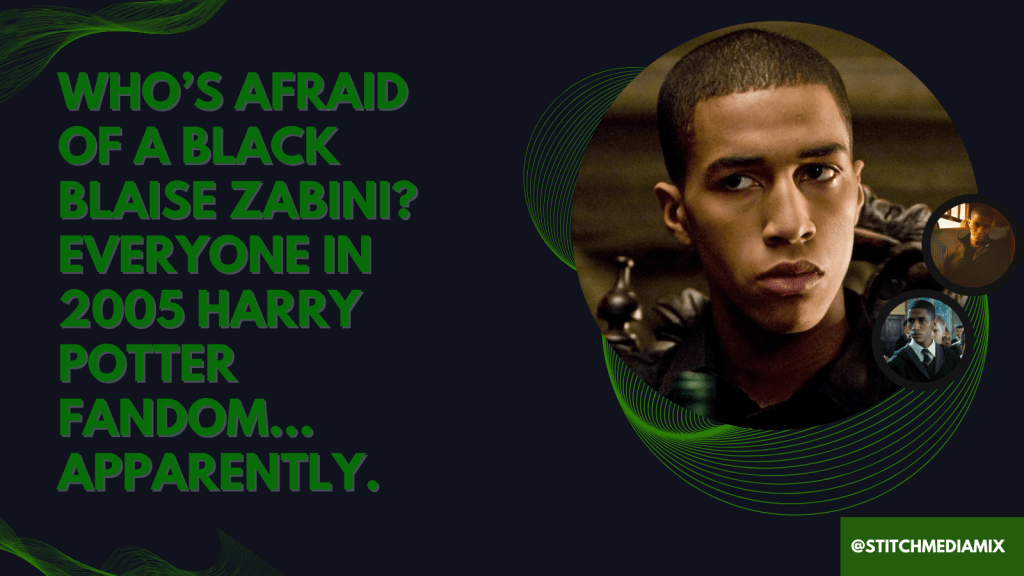
When we talk about “toxic fandoms” and racism, the easiest example people go to are male nerds mad about Black people being cast to play comic book redheads and other “historically white” characters. However, one little known or talked about example is the way that the Harry Potter fandom from 2005 practically went to war over the one-line reveal that Slytherin Blaise Zabini was actually Black.
One perfect example of antiblackness in fandom that proves false these claims that Black characters and celebrities are just “lacking” something to make them worth shipping (characterization, canon romance, tapping tropes) and that is why no one ships them?
The Harry Potter fandom’s response to Blaise Zabini before and after JK Rowling’s reveal that Blaise was male (2004 in a Q&A) and Black (“He recognized a Slytherin from their year, a tall black boy with high cheekbones and long, slanting eyes” in Harry Potter and the Half-Blood Prince Chapter 7: “The Slug Club in 2005).
Blaise Zabini’s only appearance prior to that book and film was in a single line in the first Harry Potter book (““Well done, Ron, excellent,” said Percy Weasley pompously across Harry as “Zabini, Blaise,” was made a Slytherin.). However, people instantly made up all sorts of headcanons for this character based off of a name and Hogwarts house.
For the eight years between Harry Potter and the Philosopher’s Stone and Harry Potter and the Half-Blood Prince, here’s all what fandom frequently decided Blaise Zabini was:
- Italian
- Tan (but sometimes pale)
- Dark haired with light, sometimes blue or green eyes
- Draco’s best friend
- Draco’s boyfriend
- A pain in the ass to Hermione
- Sometimes shipped with Pansy Parkinson
- Sometimes a girl
- A bisexual Chad
- A cool badass
- Occasionally very Gender (and written as androgynous or gender queer/fluid)
- A pureblood
- Interesting
- Sexy
- Charming
He didn’t have any characterization or lines in canon, but he sure did have all of that.
Read More »





You must be logged in to post a comment.